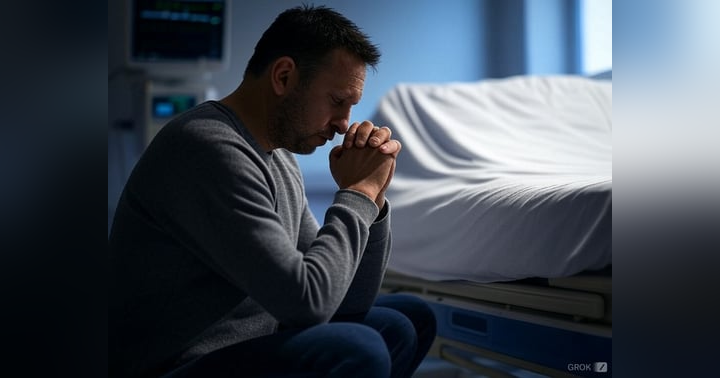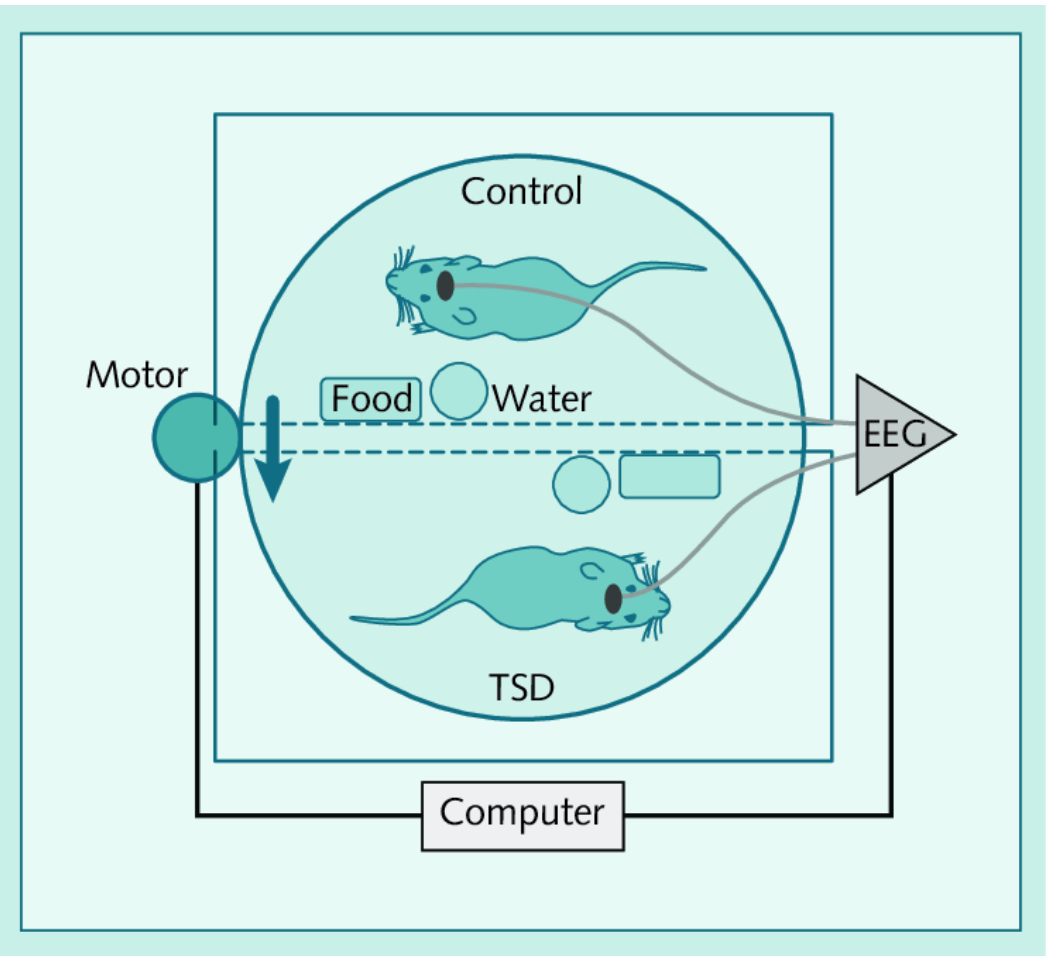Sleep in the ICU: The Classic Experiments

In the classic sleep deprivation experiments, two rats were placed on a disk that can rotate over water. They had as much food and drink as they wanted, and if the experimental rat fell asleep or entered a prohibited sleep stage, the disk started to rotate. If the rat did not keep waking, it would fall in the water, and rats absolutely hate water. The set up is shown above.
So, researchers at the University of Chicago set up experiments to see what happened if they totally sleep deprived rats. Here are the results (emphasis mine):
Ten rats were subjected to total sleep deprivation (TSD) by the disk apparatus. All TSD rats died or were sacrificed when death seemed imminent within 11-32 days. No anatomical cause of death was identified. All TSD rats showed a debilitated appearance, lesions on their tails and paws, and weight loss in spite of increased food intake. Their yoked control (TSC) rats remained healthy.
Then, they deprived them of REM (rapid eye movement) sleep, which was called "paradoxical sleep" at the time. Those rats also died, but it took them longer:
Twelve rats were subjected to paradoxical sleep deprivation (PSD) by the disk apparatus. All PSD rats died or were sacrificed when death seemed imminent within 16-54 days. No anatomical cause of death was identified. All PSD rats showed a debilitated appearance, lesions on their tails and paws, and weight loss in spite of increased food intake. Their yoked control (PSC) rats remained healthy.
Then, they deprived the rats of "high EEG amplitude sleep." They also died, but it took those rats even longer (emphasis mine):
The disk apparatus was used to deprive six rats of the portion of non-rapid eye movement (NREM) sleep with high electroencephalogram (EEG) amplitude (HS2). All HS2 deprived (HS2D) rats died or were sacrificed when death seemed imminent within 23 to 66 days. No anatomical cause of death was identified. All deprived rats showed a debilitated appearance, lesions on their tails and paws, and weight loss in spite of increased food intake. Energy expenditure (calculated from the caloric value of food, weight change, and wastes) increased to more than twice baseline values. With one exception, yoked control rats remained generally healthy.
All in all, this shows that sleep deprivation can be deadly. It is, in fact, a well-known torture technique. Thus, no one should skimp on their sleep.
Sleep is so essential to brain health, body health, and mental health. Even though we all have busy lives, and it seems that we need 30 hours in a day rather than 24, we should never sacrifice our sleep. Never. The research on the adverse effects of sleep deprivation is myriad.
Don't skimp on your sleep. It can be, literally, a matter of life or death.







